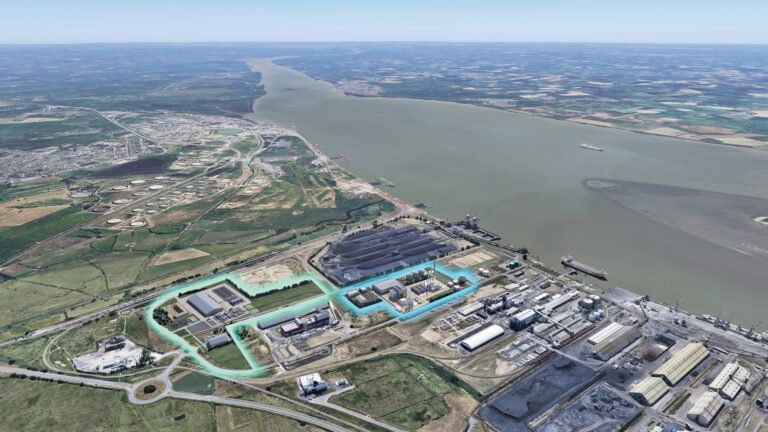Trending Article
Amazon AI Strategy: How AWS Positions the Company for Success
In a recent earnings call, Amazon CEO Andy Jassy emphasized the strategic importance of Amazon Web Services (AWS) in the company’s ongoing investments in artificial intelligence (AI). With the tech giant exceeding Wall Street expectations in its third-quarter results, posting a notable rise in revenue and earnings per share, Jassy’s comments underscored a pivotal moment for Amazon as it navigates the rapidly evolving landscape of AI technology.

The Power of AWS in AI Development
Jassy highlighted the substantial role AWS plays in Amazon’s AI ambitions, noting that the cloud-computing unit is not just a revenue generator, but a critical component of the company’s infrastructure. Amazon’s planned capital expenditures for this year are projected to reach around $75 billion, a significant portion of which will be directed towards enhancing AWS.
Jassy explained that AWS has become a cornerstone of Amazon’s ability to excel in AI because of the extensive experience the company has gained in managing a vast cloud-computing business. He pointed out that AWS represents one of the largest logistical challenges in tech today, requiring intricate planning and execution to ensure that data centers operate smoothly.
Logistics and Capacity Management
One of the key insights from Jassy’s discussion was the complexity of managing AWS’s data centers. He stated, “I think one of the least-understood parts about AWS over time is that it is a massive logistics challenge.” Effectively managing capacity across data centers worldwide is no small feat, and Amazon has developed sophisticated models to anticipate how much capacity is needed to prevent outages and maintain efficient resource utilization.
This focus on logistics and capacity management allows Amazon to maintain a competitive edge. Jassy explained that the efficiency with which different cloud providers manage their capacity directly impacts their profit margins and overall capital efficiency. In an industry where service interruptions can lead to significant costs and lost revenue, Amazon’s expertise in logistics positions it favorably against competitors.
Rapid Growth of Amazon’s AI Business
Amazon’s AI sector is reportedly experiencing exponential growth, with Jassy stating that it is expanding at three times the rate AWS did in its early stages. Describing the AI business as a “multibillion-dollar” endeavor, Jassy noted that it is currently growing at triple-digit percentages year over year. This rapid growth is indicative of a market eager to harness AI technologies for various applications, from data analysis to automated customer service solutions.
The Shift to Cloud Storage
As more companies transition to cloud-based solutions, the demand for AI capabilities is increasing. Jassy pointed out that organizations without cloud storage face significant challenges in competing in the generative AI space. “It’s harder to be successful and competitive in generative AI if your data is not in the cloud,” he explained. This trend bodes well for AWS, as businesses seek reliable cloud providers to facilitate their AI initiatives.
The implications of this shift are profound. As data becomes increasingly critical for AI algorithms, having a robust cloud infrastructure not only enhances operational efficiency but also enables businesses to leverage AI more effectively.
Amazon’s Competitive Landscape
Amazon’s aggressive investments in AI have not gone unnoticed, especially as Wall Street scrutinizes the spending habits of major tech players. While some investors express concern about the timing and returns of these investments, Jassy remains optimistic. He believes that the long-term benefits of Amazon’s AI initiatives will outweigh the initial costs, especially as demand for AI-driven solutions continues to grow.
Industry Comparisons
Amazon is not alone in its pursuit of AI. Competitors like Meta and Alphabet (Google) are also ramping up their investments in AI infrastructure. Meta recently announced plans for “significant capital expenditures growth” in 2025 as it works on building its AI capabilities. Similarly, Google CEO Sundar Pichai has emphasized the importance of investing in AI, stating that the “risk of underinvesting is dramatically greater than the risk of overinvesting.”
These comparisons highlight a broader industry trend toward prioritizing AI as a key driver of future growth. As companies race to integrate AI technologies into their operations, AWS stands poised to capture a substantial share of this burgeoning market.
The Future of AI and Cloud Computing
As Jassy articulated during the earnings call, Amazon’s deep-rooted expertise in cloud computing gives it a distinct advantage in the AI arena. The combination of AWS’s logistical capabilities and Amazon’s commitment to innovation positions the company to play a pivotal role in shaping the future of AI technologies.
Preparing for the Long Game
While immediate returns on AI investments may be a concern for some investors, Jassy remains focused on the long-term vision. By building a robust cloud infrastructure that supports AI development, Amazon aims to solidify its position as a leader in both cloud computing and AI.
The landscape of technology is evolving rapidly, and companies that adapt to these changes will likely thrive. Amazon’s strategy reflects a deep understanding of the interdependence between cloud services and AI, positioning it to capitalize on the opportunities ahead.











